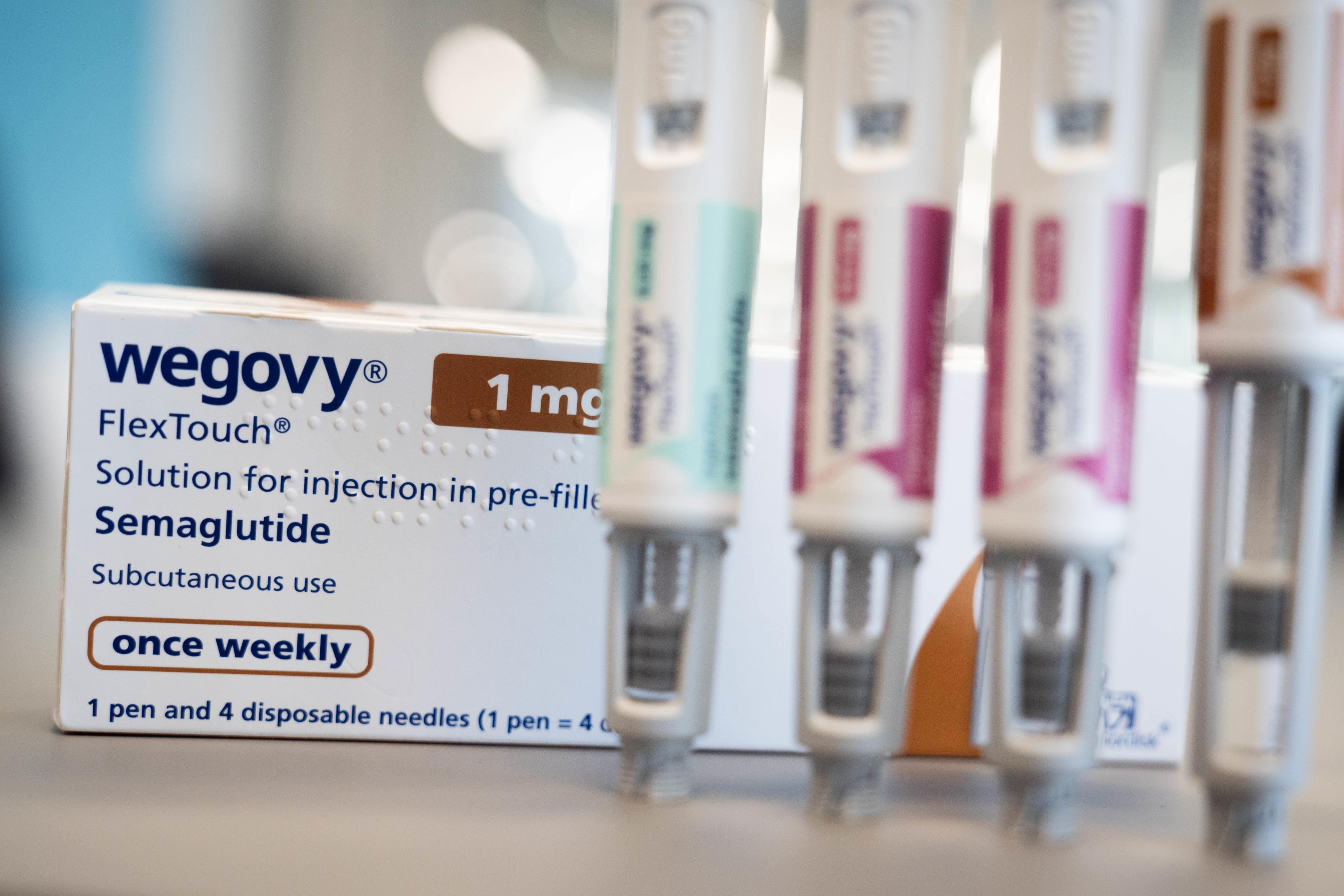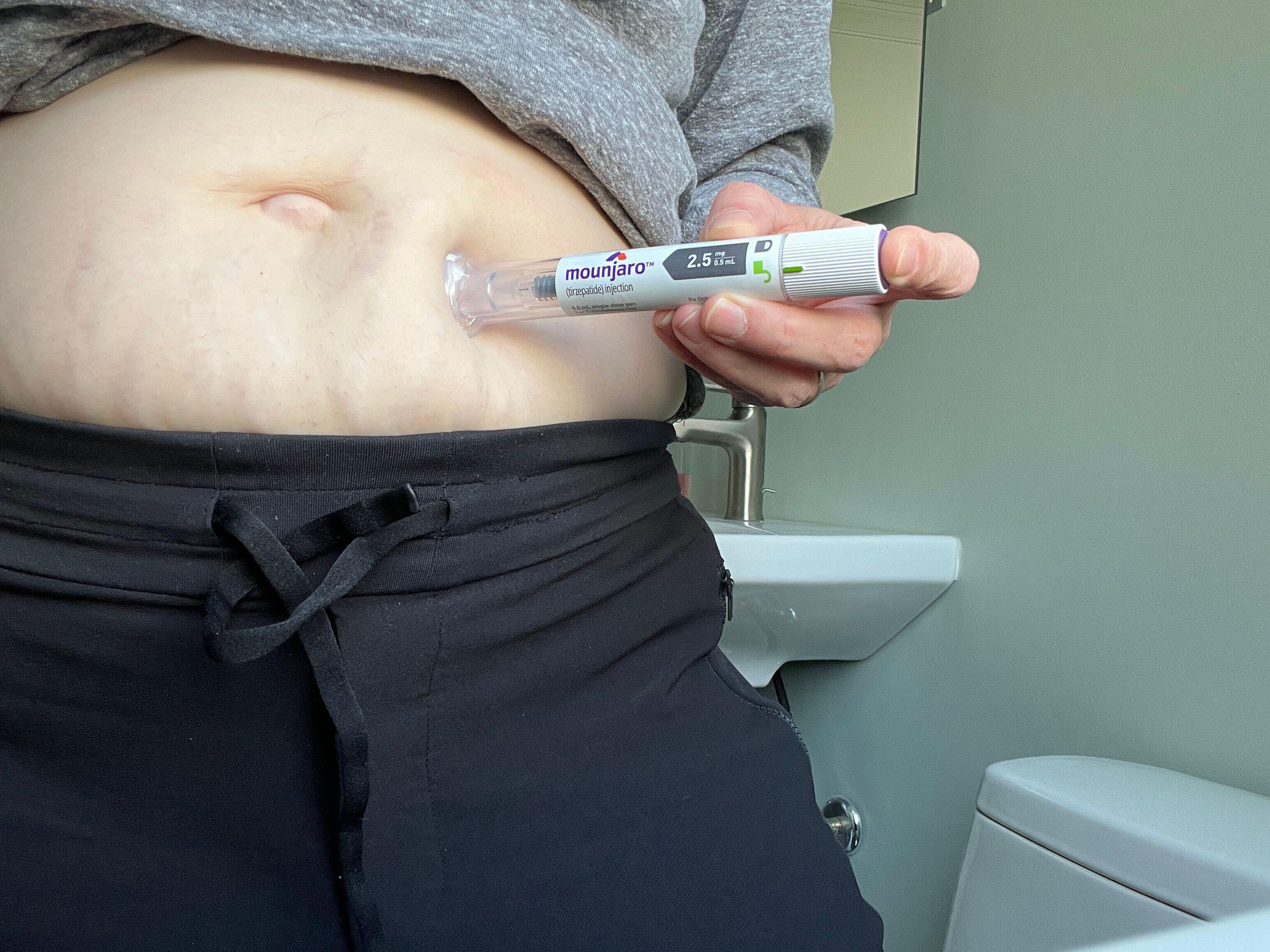New research suggests that weight loss injections, also known as GLP-1 receptor agonists, may have a significant anti-cancer effect beyond simply aiding in weight reduction.
While experts acknowledge the link between weight loss and reduced cancer risk, this study indicates the injections themselves may play a more direct role.
Researchers believe the anti-cancer properties may stem from the drugs’ ability to reduce inflammation, with newer GLP-1 receptor agonists potentially having the most pronounced effect. These medications work by suppressing appetite, making it easier for individuals to lose weight. They are available through the NHS for those with a high BMI and can also be obtained privately.
However, experts caution that further research is crucial to fully understand the relationship between weight loss injections and cancer prevention.
Major names of GLP-1 receptor agonists, some of which are used to treat diabetes, include semaglutide (Wegovy and Ozempic), tirzepatide (Mounjaro), liraglutide (Saxenda) and exenatide (a drug which has now been discontinued).
The new research, published in the journal eClinicalMedicine, was presented at the European Congress on Obesity in Malaga.
It found that first-generation GLP-1 receptor agonists such as liraglutide and exenatide may have anti-cancer benefits beyond weight loss.

Researchers first of all discovered similar rates of obesity-related cancer among patients treated with the drugs and those given bariatric surgery.
Co-lead author, Dr Yael Wolff Sagy from Clalit Health Services in Tel-Aviv, Israel, said they also found a “direct effect” of GLP-1 receptor agonists beyond weight loss “to be 41 per cent more effective at preventing obesity-related cancer”.
She added: “We do not yet fully understand how GLP-1s work, but this study adds to the growing evidence showing that weight loss alone cannot completely account for the metabolic, anti-cancer, and many other benefits that these medications provide.”
Being overweight or obese is the second biggest cause of cancer in the UK, causing more than one in 20 cancer cases.
The risk is higher the more overweight people are and the longer they have been overweight.
Keeping a healthy weight reduces the risk of 13 different types of cancer, including breast, bowel, pancreatic, oesophageal and gallbladder cancer.
In the new study, researchers analysed electronic health record data for obese people and those with type 2 diabetes, all with no prior history of cancer, who were treated with first-generation GLP-1 receptor agonists.
Over a typical follow-up of 7.5 years, 298 patients were diagnosed with obesity-related cancer, most commonly breast, bowel and womb cancer.
The analysis found that obesity-related cancer occurred in 150 of 3,178 bariatric surgery patients and in 148 of 3,178 patients taking GLP-1 receptor agonists, despite the “relative advantage” of bariatric surgery in weight reduction, which is already known to cut cancer risk.
Further analysis suggested GLP drugs had a direct effect on reducing obesity-related cancer beyond weight loss, with a 41 per cent lower relative risk compared to bariatric surgery.

Co-lead author, Professor Dror Dicker from Hasharon Hospital, Rabin Medical Centre in Israel, said: “The protective effects of GLP1-RAs against obesity-related cancers likely arise from multiple mechanisms, including reducing inflammation.
“Our study is unique in that the long-term follow-up allowed us to compare the effects of GLP1-RAs and surgery with potential long latency periods of cancer.
“New generation, highly potent GLP1-RAs with higher efficacy in weight reduction may convey an even greater advantage in reducing the risk of obesity-related cancers, but future research is needed to make sure that these drugs do not increase the risk for non-obesity-related cancers.”
Naveed Sattar, professor of cardiometabolic medicine at the University of Glasgow, said larger trials with carefully matched groups of people were needed to test the theory.
“This study, whilst interesting, cannot confirm or refute any links of incretin-based therapies with cancer as the design was not a trial but rather observational, and there were quite marked differences between the groups in baseline characteristics that simply cannot be matched,” he said.
“It is better to wait to see further large outcome trials versus placebo to get closer to the truth.”
He said larger trials “are needed to understand links between such medicines and cancer risks, and several should report over the next five years”.



